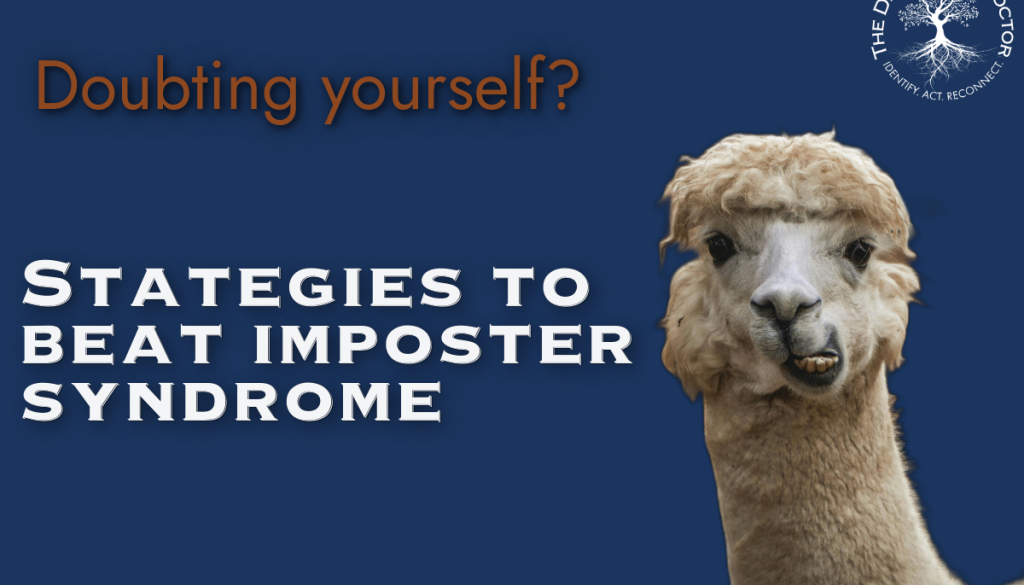Self Doubt in Medicine: Breaking Free from Imposter Syndrome
Does this scenario ring true: you’re in the middle of a procedure you’ve done hundreds of times, your hands steady, your mind sharp, but there’s a small voice whispering in the back of your head, “You don’t belong here.”
Self-doubt affects us all. That self- doubt, or imposter syndrome, is a persistent and nagging feeling that ingores all your accomplishments. If you’ve ever felt this way, you’re not alone. In fact, imposter syndrome is surprisingly common in medicine, affecting everyone from medical students to seasoned physicians. But is it an inevitable part of the job, or can we overcome it? Let’s explore.
What Is Imposter Syndrome and Why Is It So Common in Medicine?
Imposter syndrome is that inner voice of doubt that tells you you’re not good enough, even when all evidence points otherwise. In medicine, this feeling is amplified due to the high stakes of the profession. We’re tasked with making life-altering decisions, often under immense pressure, and the expectation of perfection looms large.
As a first-year medical student, I genuinely believed my admission was a mistake. I thought someone would figure it out, call me into the dean’s office, and tell me to pack up and leave. Over time, I realized I wasn’t alone. Research shows that one in four physicians experiences imposter syndrome at any given time, regardless of their experience level.
The constant evolution of medical knowledge further compounds this feeling. Just as you think you’ve mastered a concept, a new study or treatment emerges, making it feel like the target is always moving. Add to that the ingrained culture of perfectionism in medicine, and it’s no wonder so many medical professionals feel like frauds.
Understanding the Roots of Imposter Syndrome
Why does imposter syndrome persist even in highly competent professionals? Experts like Dr. Shanafelt and Dr. Valerie Young provide some insights:
- Imposter syndrome is prevalent among high-achieving individuals. This means that the very people who are most skilled and knowledgeable are often the ones who doubt themselves the most.
- The Dunning-Kruger effect suggests that those who are truly competent are more aware of the vast amount of knowledge they have yet to master. In short, they know what they don’t know. This insight leads to feelings of inadequacy.
- Perfectionism is deeply rooted in medical culture. Dr. Young identifies the “perfectionist type,” who sets unreasonably high standards and feels inadequate when those standards aren’t met. This mindset is particularly common among healthcare professionals.
These factors create a cycle of self-doubt and anxiety. We set sky-high expectations for ourselves, inevitably fall short because we’re human, and then label ourselves as failures. But here’s the twist: these feelings of doubt often point to your commitment to excellence, not incompetence.
Breaking Free: Strategies to Overcome Imposter Syndrome
So, how do we break free from this cycle of self-doubt? The good news is that imposter syndrome doesn’t have to define your medical career. Here are some evidence-based strategies to help you overcome it:
- Find a mentor: Connect with experienced physicians who can share their struggles and successes. A mentor can provide perspective and remind you that you’re not alone.
- Shift your mindset: View challenges as opportunities to learn and grow rather than as failures. Reframing your perspective is key to reducing self-doubt.
- Use cognitive tools: Techniques like cognitive restructuring and mindfulness can help you reframe negative thoughts and maintain focus during stressful situations.
- Engage in group support: Join peer support groups or reflection sessions to share experiences and gain new coping strategies. Creating a culture of openness can be transformative.
I remember a pivotal moment in my journey. I was the most experienced physician in the room during a complex case, and those familiar doubts crept in. But instead of letting them take over, I paused and said, ‘I’m not sure what the next best step is. Can we reflect as a team?’ That moment of vulnerability led to a better plan and reminded me that asking for help is a strength, not a weakness.”
Embracing Humanity in Medicine
As Dr. Shanafelt wisely says, “Embrace the physician as a human rather than as a hero.” This simple yet profound mindset shift reminds us that we’re not superheroes—we’re people doing our best in a challenging field. Feeling like an imposter doesn’t make you one. Instead, it’s a shared experience that we can learn to manage.
Overcoming imposter syndrome is a journey, not a destination. It’s about developing a balanced self-perception, recognizing your growth, and fostering a supportive community. Remember, you’ve come this far for a reason. Trust your skills, embrace your humanity, and keep striving for excellence.
Let’s Eliminate Self-Doubt in Medicine
How have you dealt with feelings of self-doubt in medicine?
If you’re waiting for the self-doubt to disappear on its own, it won’t
Change doesn’t come knocking—you have to open the door.
Book a consult today or jump into the course designed to help physician take control of the lives and careers.





